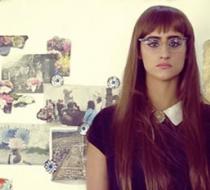Pandora's Project 1 Favorite
It was October 31st, 2012, when a new artist appeared on social media. In a series of video clips, she proposed with a soft and slow speech that Peru hide its poverty. Her project consisted of installing vinyl pieces to avoid what she called "the visual pollution." She titled the project Don't be poor, be fashion(able). At the end of her manifesto, she stated that for "Peru to stop being poor, it has to stop looking poor." Pandora had emerged.
During more than a week, Pandora's project fuelled the flames on social media in response to her artistic proposal. The majority of the comments were full of outrage, bewilderment, and disapproval. Insults, reflections, analysis of poverty, and even suggestions were part of the audience's discussion. The controversy reached the press, who wanted to know more about the artist who did not show any intention of retracting.
Finally, on day number ten, the controversy took a 180-degree turn. A new video was released on Pandora's YouTube channel. This time Pandora, looking directly to the camera, took off her wig and her glasses to explain that it was all part of a communication campaign. The Latinamerican organization TECHO was responsible for this initiative in their mission to overcome poverty.
It turns out that Peru was experiencing a period of noticeable economic growth in those years. This context overshadowed the situation of poverty that eight million Peruvians were living at that time. TECHO felt the impact in different ways, such as the decrease in the enrollment in volunteer activities. To tackle the naturalization of poverty, TECHO launched Pandora's project. The fictional artist represented the lack of regard in the country in a hyperbolic manner. Therefore, at the end of the disclosure video the "artist" Pandora claimed: 'If you spent so much time on the poverty issue in the virtual world, why not do it in the real one?' The tone of the conversation changed to a positive one full of surprise.
Moreover, the media interest increased as well as the calls for enrolling as volunteers. According to TECHO, the organization aimed to wake up citizens about their own indifference and make them aware that there are different platforms to act. Pandora's insensitive proposal to hide poverty became an opportunity to open spaces that shed light on the reality of inequality in Peru and Latin America.







